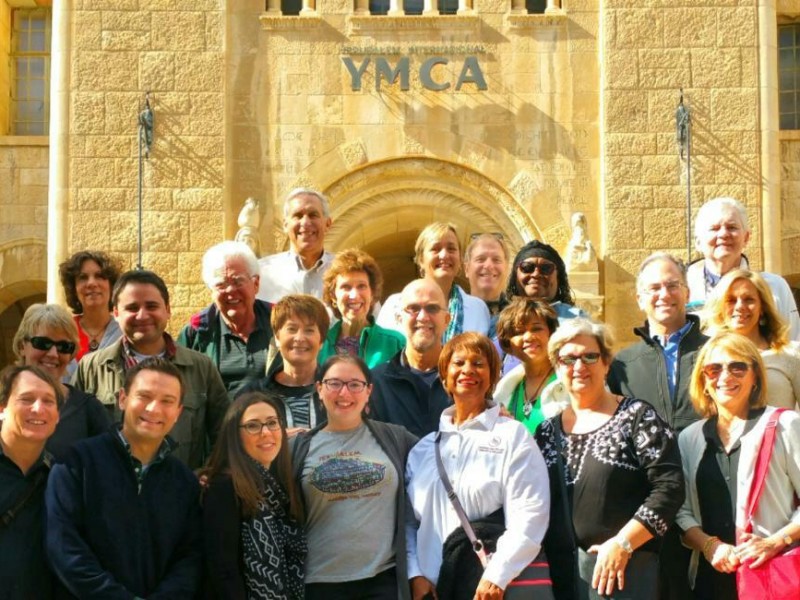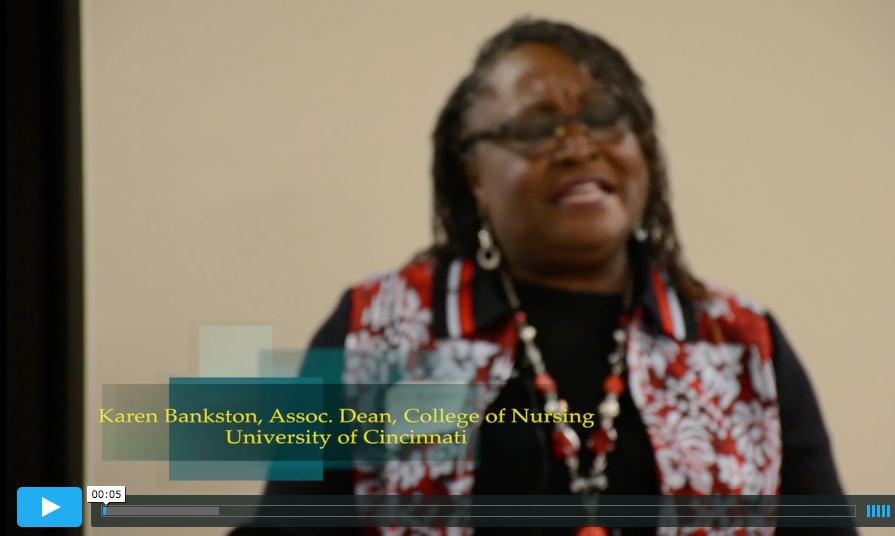Jewish Community Relations Council (JCRC)

Walking in their Sandals: Israel Exchanges Build Cross-Community Allies
By Shep Englander and Sarah Weiss
Even as the role Israel plays in our communities becomes increasingly challenging, specialized Israel trips and exchanges can be remarkably powerful in building alliances with civic and community leaders.
In Cincinnati, our efforts to build strong connections with Israel grew exponentially more than a decade ago, when our community began offering and promoting generous grants for teen Israel experiences. The Jewish Foundation of Cincinnati’s investment, vision, and initiative created the most comprehensive non-need-based subsidies for teen travel to Israel available in any American city. The Foundation’s decision to ask our organization, the Jewish Federation of Cincinnati, to coordinate this program planted the seeds for a rich and collaborative relationship between the two autonomous organizations.
Since 2010, our Federation and its Jewish Community Relations Council have designed and coordinated many customized Israel trips for specific leadership constituencies, including business leaders, university leaders, and medical professionals. These trips created good will toward Israel and our community and have led to a number of ongoing partnerships between Cincinnati hospitals, businesses, and universities and their counterparts in Israel. They also created a buzz that had some of our city’s most prominent leaders asking to be invited on the next trip.
Five years ago, many of our local business leaders understood Israel mostly through the media’s focus on “the conflict.” Four trips with many of our community’s most prominent and influential business leaders, jointly funded and coordinated by the Foundation and our Federation, have yielded changed perceptions and new strategic initiatives.
Our Chamber of Commerce initiated a partnership to advance business relationships with Israelis under the leadership of Cincinnati’s Regional Economic Development Initiative. This fall, we welcomed two Israeli companies who chose Cincinnati for their US headquarters. Since 2012, more than 30 Israeli companies have visited Cincinnati to explore and commence business opportunities. Additionally, the Israel Exchange Program at Cincinnati Children’s Hospital recognizes that Israel is a global leader in medical research, innovation, and technology, and has developed a multi-level program collaborating with Israeli hospitals and universities.
Two years ago, after hearing about the success of these previous business and academic exchanges with Israel, the CEO of the United Way of Greater Cincinnati asked about the possibility of an Israel exchange focusing on social policy challenges that Cincinnati and Israel share. Just before Thanksgiving, our community sponsored twenty of Cincinnati’s most respected civic and education leaders for an exchange designed to help tackle one of our top local priorities – making early childhood education more accessible in order to improve the lives of children living with poverty and trauma.
Our delegation included key players in shaping Cincinnati’s early childhood policy, including our Vice Mayor, the superintendent of Cincinnati Public Schools, community health experts from local universities and Cincinnati Children’s Hospital, and the executives of our city’s United Way, YMCA, and YWCA. Virtually every civic leader on our priority invitation list enthusiastically agreed to participate. Despite the recent wave of terror attacks in Israel, not one dropped out.
The trip showed participants and their organizations that Israel can provide Americans with relevant, valuable insights, not only about startups, but also about public policy, like early childhood education strategies. Right now, our city’s nonprofits are organizing around a vision to make early childhood education universally accessible. This vision was enhanced by learning firsthand about how Israel has recently implemented this policy nationally.
Together, we visited more than a dozen specialized early childhood programs designed for impoverished Israeli children, Arab-Israeli children, and children living closest to the Gaza Strip under the threat of Hamas missile strikes. After hearing how the Israel Trauma Center trains families and communities in resiliency, so they can be first-responders for children traumatized by missile attacks, the Cincinnati participants immediately saw how this approach could be adapted for Cincinnati’s inner-city children who are traumatized by ongoing violence.
Our participants started the trip as professional acquaintances, but returned home as a tight-knit team of colleagues with a shared vision for transforming children’s lives. Community opinion leaders came home with a broad and balanced understanding of both Israel’s miracles and steep challenges.
As we gave those bittersweet last hugs at the Cincinnati airport, a participating university dean remarked that even before the trip, she had considered national groups’ campaigns for anti-Israel boycotts as unfair. But her firsthand experience and connections with the people of Israel convinced her to respond. She said she planned to get involved personally to oppose the anti-Israel efforts.
Israel is painfully vulnerable to public misperceptions. Yet minds can be opened when we can provide the opportunity for others to walk with Israelis and to learn their challenges and strengths. With this latest trip, we have witnessed yet again the transformative power of Israel exchanges for creating allies here at home.
Shep Englander is the CEO of the Jewish Federation of Cincinnati. Sarah Weiss is the director of Cincinnati’s Jewish Community Relations Council.


